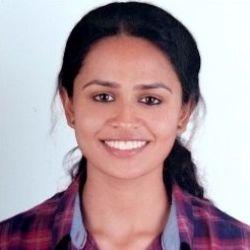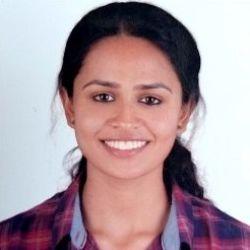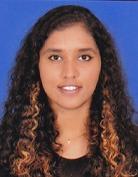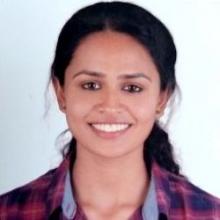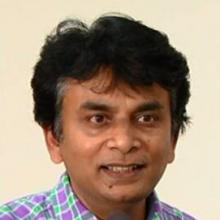Science, Technology and International Relations
The STIR Programme is the newest programme within the School of Conflict and Security Studies at the Institute. The Programme aims to look at international relations from an S&T perspective and vice-versa. The programme also attempts to develop area studies at the global level.
It has a special focus on Science Diplomacy. With an objective to focus on “Science for Diplomacy” and “Diplomacy for Science”, the Programme aims to bridge between the two. The immediate focus of the Programme under Science Diplomacy is focused on healthcare, space, cyber, artificial intelligence, maritime, climate change, and disaster management. During 2020-21, the Programme has started a focused course, one of its kind on Science Diplomacy.
The Science Diplomacy Programme at NIAS has four major components – research, publications, policy interventions, and dialogues/networks. All four components feed into each other, making the Programme holistic, comprehensive, and multi-disciplinary. The primary focus is on the Arctic, Himalayas, Blue Economy, Outer Space, and Affordable Healthcare.
In terms of dialogues and networks, the Programme function as the Secretariat for the BRICS-Young Scientists Forum (BRICS-YSF), supported by the Department of Science and Technology, Government of India. The main goal of BRICS YSF is to provide a common platform, for young budding scientists across BRICS countries, to help them to connect and network in order to resolve common societal challenges with innovative research. The Programme is also looking towards creating similar networks on the BIMSTEC and SCO.

Research Associate
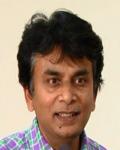
Professor
| Global Politics: Contemporary World Affairs The Programme also looks at Global Politics as one of the important research focus. While the original objective of studying Global Politics within Science Diplomacy was to build capacity towards the latter, the former has become an independent study of inquiry. |
| Area Studies: Pakistan, China, Europe, and Maritime The Programme has a special focus on four areas – Pakistan, China, Europe, and Maritime. The Programme aims to develop expertise on the above four regions. The programme publishes an evening brief on Pakistan and China, while a daily brief on Europe. |
| Arctic Research The Programme has been working on the Arctic from an Indian perspective. One of the PhD scholars at the Institute is working on institutions dealing with Arctic governance. Another Arctic pivot is on S&T, how India could pursue its options and with whom. Third, the Programme also looks at a larger strategic/political approach to the Arctic and aims to frame policy approaches available for India. The larger objective of the Programme is to make NIAS the core of Arctic research in India. |
| Space Research Similar to the research on the Arctic, the Programme is also working on Space research from an international perspective. One of its PhD scholars is working on comparing the Space policies of countries. Emerging Space Order and India’s role remains the pivot of programme’s research on Space. |
| Science, Technology and International Relations Another important focus of the Programme is on STIR. Based on the premise that the following decades would increasingly witness “Tech War” following the “Cold War” and “Trade War” prism of international relations, the Programme looks at the interaction between S&T and IR. The current focus is on Cyber and AI. One of the PhD scholars is also working on the subject. In June 2021, it started a fortnightly – STIR. |
| Climate Change The focus of the programme on climate change is narrowly limited to the S&T aspects and related to international relations. One of the Ph.D. scholars is working on climate change in the Himalayas through a governance perspective. |
| Maritime and Disaster Management The programme wants to build its capacity in pursuing maritime and disaster management through S&T and IR prisms. Unfortunately, during 2020-21, the Programme could not pursue the area. |
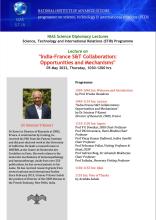
|
NIAS Science Diplomacy Lectures India-France S&T Collaboration: Opportunities and Mechanisms Dr Srinivas V Kaveri, CNRS, France International Strategic and Security Studies Programme NIAS 05 May, 2022 |
| NIAS-DST BRICS Workshop BRICS Young Scientists Conclave on Affordable Healthcare, Energy Solutions, and Cyber-Physical Systems NIAS STIR Programme September 13, 2021, to September 16, 2021 |
The Programme publishes the following:
The World This Week
An academic initiative of the NIAS Programme on Science, Technology and International Relations, is published as part of the research activities of the NIAS Global Politics course. The alert published every Sunday, aims to provide its readers with a ready reckoner of major developments during the week under three heads - what happened, what is the background, and what does it mean. The Alert also provides an opportunity for the young scholars at NIAS and its partner institutions to follow and comment on contemporary global developments.
Pakistan Reader Evening Brief
Published by the Pakistan Reader initiative within the Programme, it is an evening e-alert that aims to update the readers on contemporary developments within Pakistan daily. The PREB covers focused notes on issues of current development in Pakistan as well as briefs on political, social, economic, and security issues.
China Reader Evening Brief
A new initiative from the NIAS course on Global Politics at the Science, Technology and International Relations Programme at the National Institute of Advanced Studies (NIAS), the brief aims to cover political, economic, social, and cultural developments in China daily.
Europe Monitor Daily Brief
Published by NIAS Europe Studies aims to monitor, record, and analyze the daily developments across Europe as short briefs, focused commentaries, and critical essays. The scope of NIAS Europe Studies includes reviewing contemporary geopolitics, security, human rights, climate change, as well as science and technology issues across Europe. Internal politics, democratic dividends, and protests movements, trans-Atlantic alliances, regional integration, and the role of external factors such as China are a few niche areas of critical focus.







